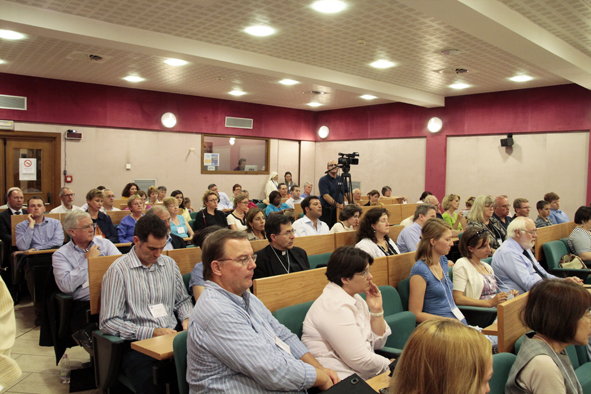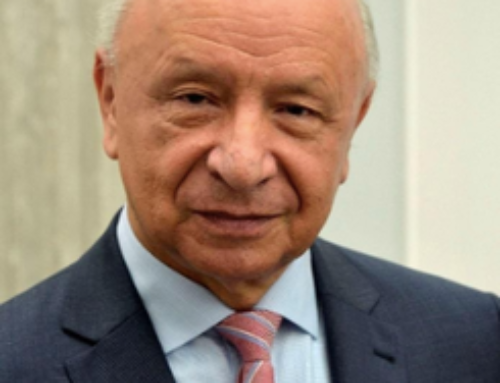On October 27th 1967 abortion became law in the UK, the first in a Western country. Through a process of gradualism, abortion has become the basis on which maternal health care is provided, and it brought about a fundamental change in the practice of obstetrics and midwifery. Sadly, from “opposing legalising abortion” prior to 1967, the aim now of the Royal College of Obstetricians and Gynaecologists of England is to “decriminalize abortion” altogether.
The consequences for the 1967 Abortion Act have been far reaching. The Royal College, once the organisation that protected, trained and supported its members, is now an organisation that discriminates against those who, because of conscientious objection, refuse to cooperate in destroying the unborn and have maintained a fundamental stand in defence of unborn life. Those Obstetricians and Gynaecologists were/are considered to be “ultra conservative”, “professionally out-dated” and even possibly considered “negligent” and were/are subjected to the displeasure of professional associations and government health services. No other medical specialty has suffered so much as a result of the 1967 Act. This persecution against specialists and midwives continues.
It soon became clear to many that there was a need for a professional organisation that supported and encouraged those who stood by their medical and faith principles. After a long gestation period in 1997, MaterCare International (MCI) was formalized, whose mission primarily is to carry out the work of Evangelium Vitae by evangelising ourselves and by improving the lives and health of mothers and babies, both born and unborn. MCI has become the obstetrical arm of the FIAMC (World Federation of Catholic Medical Associations).
The idea of doing something to evangelise ourselves was decided on by myself and Dr. Gian Luigi Gigli, a neurologist and at the time president of the FIAMC. The idea of holding a unique type of medical meeting was discussed while Dr. Gian Luigi and I were on a medical needs assessment trip to Albania during the Kosovo crisis. The plan developed was not for a typical medical convention but for a small conference somewhere in Rome; the content would be a balance between spiritual needs, bioethical concerns and current obstetrical and gynecological issues.
The first conference was held in 2001 and attracted 120 OB/GYNs from 40 countries – the theme was “The Human Right to be Trained and to Practice according to Conscience”. One poignant comment from a colleague was this, “I did not realise that I was not the only one who felt lonely and marginalized.” This year marks the 20th anniversary of MCI’s foundation, and our 9th meeting in Rome. This year’s theme is “Catholic Health Professionals Can Still Deliver: Confronting today’s moral and ethical challenges”. Others such meetings have been held in Warsaw, Zagreb, and two in Nairobi.
MCI has also put into practice its mission to care for poor rural mothers by providing essential obstetrics, always working though with bishops, mostly in sub-Saharan Africa, as well as Nigeria, Ghana, Rwanda, Sierra Leone and East Timor and Haiti, and since 2005, Kenya. MCI’s Project Isiolo in the Apostolic Vicariate of Isiolo, Kenya is demonstrating that a Catholic professional NGO can still deliver the effective maternal health care to rural mothers that respects their dignity and traditional religious values. The project counters the international agenda, to fund abortion and birth control, a form of neo-colonialism and an “Attack on Africa”.
Now for the second time, all doctors face ethical and moral challenges as they are being licensed again to kill their patients as part of “public health services”. Already it is being intimated that this could be good for governments and a convenient source of organs for transplantation but bad for premature babies and those with handicaps and for the aged and the chronically sick as health care costs escalate. The result will be the traditional relationship between patient and doctor will undergo fundamental change; from being a covenant of trust, to one which is simply a contractual agreement.
Of deep concern is the article by Savulescu and Schuklenk entitled “Doctors Have no Right to Refuse Medical Assistance in Dying, Abortion or Contraception” in which the authors respond to Christopher Cowley’s previously published article which argued that we have ‘misunderstood the special nature of medicine, and have misunderstood the motivations of the conscientious objectors’ Savulescu and Schuklenk attempt to argue in favor of;
(1) removing a right to conscientious objection; (2) selecting candidates into relevant medical specialities or general practice who do not have objections; (3) demonopolizing the provision of these services away from the medical profession.
It is also being suggested that students should be screened at the time of entry into medical school for their views on these ethical matters.
In stark contrast, we have the prophetic statement of Pope John Paul II, who at a private audience during MCI’s first Rome conference in 2001 commented;
“You are always called to be servants and guardians of life […] Your profession has become still more important and your responsibility still greater in today’s cultural and social context, in which science and the practice of medicine risk losing sight of their inherent ethical dimension, [and] health-care professionals can be strongly tempted at times to become manipulators of life, or even agents of death” (E.v, 89).
The Holy Father went on to say;
“It is my fervent hope that at the beginning of this new millennium, all Catholic medical and health care personnel, whether in research or practice, will commit themselves wholeheartedly to the service of human life. I trust that the local Churches will give due attention to the medical profession, promoting the ideal of unambiguous service to the great miracle of life, supporting obstetricians, gynaecologists and health workers who respect the right to life by helping to bring them together for mutual support and the exchange of ideas and experiences.”
The Catholic Church has, throughout history, been one of the largest providers of health care, especially for mothers. Religious orders developed maternity clinics which became some of the finest obstetrical units in the world. This future however is not assured, certainly in Western countries as governments nationalise Catholic institutions, but also as religious vocations to the health care vocation continue to decline and lay Catholics are forced out of their own vocations. The Church has always required excellence of the training of priests and religious, but, as Saint Pope John Paul II pleaded, the medical, nursing and midwifery professions need the same attention but in new ways. Thought must be given to how the Church will continue to deliver Mercy through health care.
Dr R.L Walley
Founder and Executive Director
Professor Emeritus of Obstetrics and Gynaecology
MaterCare International
Originally presented at the 2017 MaterCare Rome Conference










